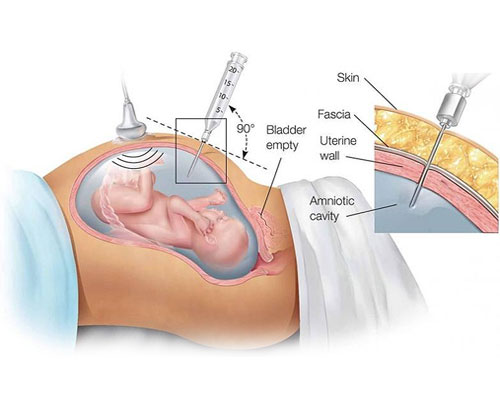Amniocentesis Treatment

Introduction
Amniocentesis is a test you may be offered during pregnancy to check if your baby has a genetic disorder, such as Down's syndrome.
It involves removing and testing a small sample of cells from amniotic fluid, which surrounds the foetus in the womb (uterus).
How amniocentesis is performed
Amniocentesis is usually carried out between the 15th and 20th weeks of pregnancy, but may be performed later than this if necessary.
Although it can be performed earlier, this may increase the risk of complications of amniocentesis and is usually avoided.
During the test, a long, thin needle is inserted through your abdominal wall, guided by an ultrasound image. The needle is passed into the amniotic sac that surrounds the foetus and a small sample of amniotic fluid is removed for analysis.
The test itself usually takes about 10 minutes, although the whole consultation may take about 30 minutes.
Amniocentesis is usually described as being uncomfortable rather than painful. Some women describe experiencing a pain similar to period pain or feeling pressure when the needle is taken out.
Getting your results
The first results of the test should be available within three working days and this will tell you whether Down's, Edward's or Patau's syndrome has been discovered.
If rarer conditions are also being tested for, it can take two to three weeks or more for the results to come back.
If your test shows that your baby has a serious inherited or genetic disorder, the implications will be fully discussed with you. There's no cure for most of the conditions amniocentesis finds, so you'll need to consider your options carefully.
You may choose to continue with your pregnancy, while gathering information about the condition so you're fully prepared, or you may consider having a termination (abortion).
